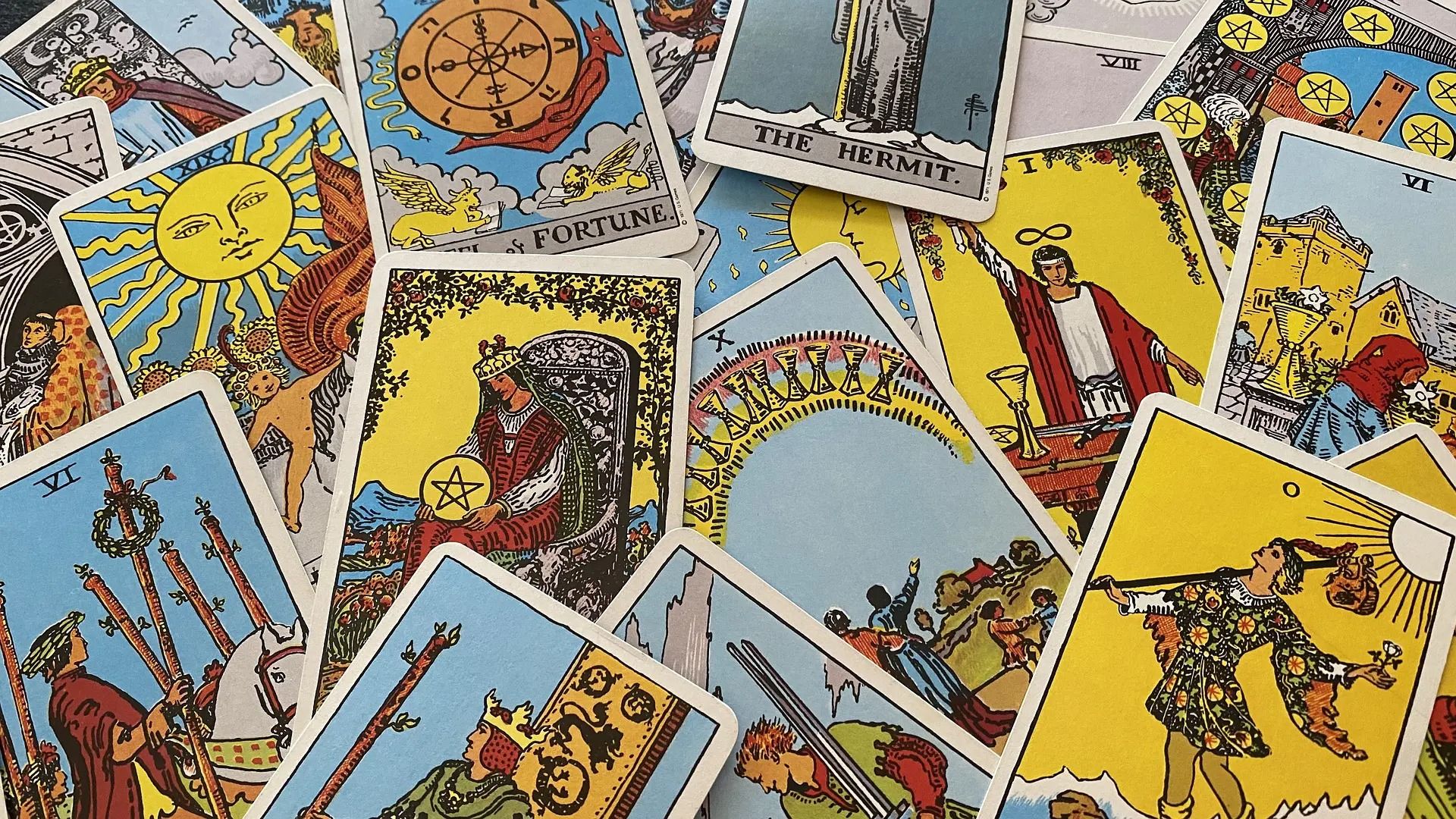Ken James
Exploring Individuation with the Tarot

I hear you asking, “A Jung Platform course on the Tarot? What has that to do with Jungian Psychology?
Jung explored a wide array of psychological concepts, including divination and its companion, synchronicity. Rather than viewing this with surprise, it is helpful to recognize Jung’s vast and diverse interests, which extended to alchemy, flying saucers, and discussions of religion, soul, and spirit. This breadth of focus underscores the richness and depth of Analytical Psychology (Jungian Psychology), both as a theoretical framework and as a therapeutic method, capable of addressing the many dimensions of human experience.
Jung approached human suffering and healing with boundless curiosity, drawing on anything that had influenced or interested humanity throughout history. Central to his vision was the unconscious, a vast reservoir of challenges and solutions to life’s problems. He identified two layers within the unconscious: the personal unconscious, containing unprocessed material from an individual’s own life, and the collective unconscious, a deeper layer holding universal elements shared by all humans simply by virtue of being alive. Jung called these universal contents archetypes—primordial patterns or symbols shaping thought, behavior, and creativity across cultures and time. By integrating the personal and collective dimensions of the unconscious, Jung created a profound and comprehensive framework for understanding human growth and healing.
Self-knowledge can be achieved through a deep exploration of one’s personal history and by reflecting on life using the tools of Jungian psychology. These tools include dreamwork, recognizing projections, displacements, somatizations, and synchronicities. Among these, divination practices such as the I Ching and Tarot stand out as unique examples of synchronistic experiences. Jung wrote extensively on the I Ching and mentioned the Tarot as a symbolic system capable of revealing insights about one’s life journey that may not be accessible through other means.
For Jung, the process of individuation—psychological growth and healing—required not only understanding the historical roots of suffering but also accepting that suffering serves a purpose.
The Tarot, a deck of seventy-eight cards depicting both personal and archetypal imagery, has been used for over a thousand years across various cultures. It serves as a tool for understanding the present, reflecting on the past, and glimpsing the future. Its symbolic nature allows it to tap into the unconscious, offering a profound perspective on life’s challenges and patterns.
Jung emphasized that every situation, especially those marked by suffering, has both a cause rooted in the past and a purpose guiding the individual toward a future resolution. He referred to this forward pull as the “telos,” derived from the Greek word τέλος, meaning “end, purpose, or goal.” Originally a concept of Aristotelian causality, Jung adapted it to signify the psychological goal of resolving suffering and uncovering its deeper meaning.
The telos of an event suggests that all experiences are moving toward a future goal or purpose. For Jung, the process of individuation—psychological growth and healing—required not only understanding the historical roots of suffering but also accepting that suffering serves a purpose. It guides the individual toward a future state where the pain can be relieved and integrated into a larger, meaningful whole. Jung believed that any tool aiding this process, including divination, could have profound relevance in fostering self-awareness and growth within Jungian analysis.
Become a Certified Jungian Tarot Reader
Learn to interpret the Tarot for yourself and others through a Jungian lens! This certification program combines theory, practical exercises, guided practice, and reflective learning. Our instructor Ken James has been a Jungian Analyst for over 30 years and worked with the Tarot for 50 years. Perfect for beginners and experienced readers alike.
Jung Platform also offers two other on-demand Tarot programs taught by Ken James: A Jungian Perspective on the Tarot Level 1 and A Jungian Perspective on the Tarot Level 2. These programs provide an in-depth exploration of the Tarot through a Jungian lens, ideal for deepening your understanding of its archetypal wisdom.
Share
Ken James
Kenneth James, Ph.D. is a Jungian analyst in private practice in Chicago, Illinois. He received a Ph.D. in Communicative Sciences and Disorders from Northwestern University, and a Diploma in Analytical Psychology from the C.G. Jung Institute of Chicago. Along the way, he studied vocal music at the American Conservatory of Music, and learned a modality of music therapy known as The Bonny Method of Guided Imagery and Music at the Institute for Consciousness and Music in Baltimore, Maryland.
Other blog posts

Jung Platform is an online education space that offers a range of depth psychological and spiritual perspectives. Our courses and talks explore the journey of life with guidance from highly regarded teachers.
We are passionate about offering practical, life-enhancing tools and opportunities to connect with others on this path. Our aim is to help people connect to their own soul, so they can live more fully and colorfully.
Stay inspired.Get our magical updates.
Thank you for signing up!
FEATURED LINKS
-
Headquarters in Salt Lake City, Utah
-
info@jungplatform.com
-
Copyright © 2026
